“These are the lessons my mother and father passed on to me—to help others feel valued and loved.”

Your story started years ago, and it’s been shaped by millions of memories. Memories of home, of family, of community, of the land where you were raised. Memories guide you. They set you toward the future.
This is the story of how memories lead to action. Of Microsoft employees, working together to make their communities and our planet—the home we all share—better, today.
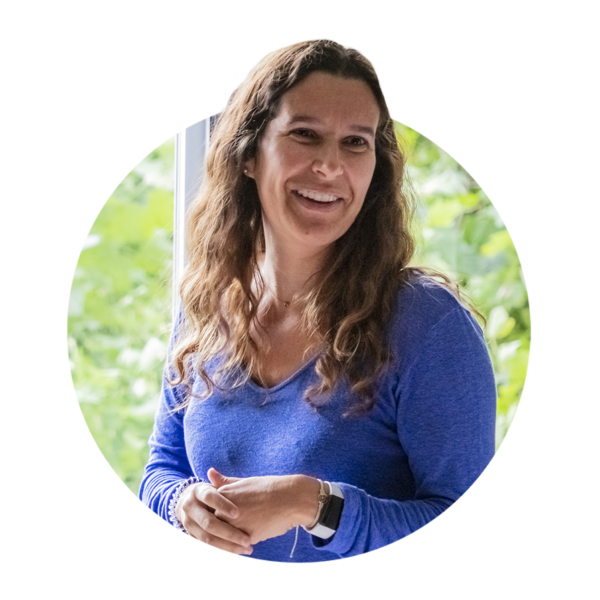
“Am I someone my parents would be proud of?”
“Do something that makes you happy because then you bring the best of you to work. This was advice I recently gave a group of interns, and it’s something I think about every day.
As I drive to the office each morning, I think about three things. First, my life: How am I feeling? Next, my family: How are they doing? And, finally, my work: Am I contributing to society and making an impact?
Are these three things balanced? And am I someone my parents would be proud of?
When I get to the office, I am set and know what I need to do for the day.” —Rita Picarra, from Lisbon, Portugal
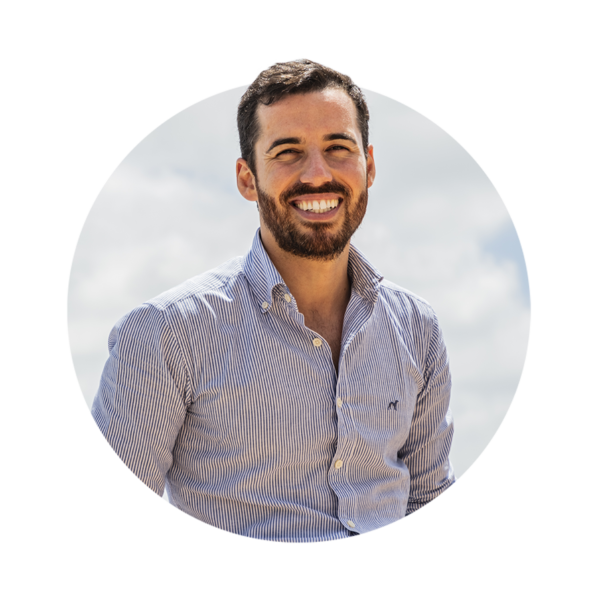
“I felt support from Microsoft’s culture and decided it was time for me to come out.”
“I come from a small village, and when I was 17, I bought a magazine that featured Microsoft as one of the best companies to work for. And I remember reading it and thinking, ‘Oh, I’ll never get there.’
But I did! And when I started at the company, I was overwhelmed with the amount of internal information about the culture, volunteer programs, and emphasis on diversity and inclusion. I came across a piece of testimony from a person who began their gender transition while working at Microsoft, and I thought, ‘Well, that’s not what I expected!’
Because of that employee’s story, I felt support from Microsoft’s culture and decided it was time for me to come out. Had I worked at another company, maybe I wouldn’t have done it yet, but Microsoft was different.
This past year, Microsoft was the first company to have a float in Lisbon’s Pride parade, an effort I helped lead. Our LGBTQI+ employee chapter now has around 30 members, and we hope many more to come!”—Sergio Matos, from Santiago do Cacém, Portugal
“Judo has helped me learn how to manage my life with diplomacy.”
“I’ve been practicing judo since I was a little kid. Thirteen years ago, I joined a club called Judo Clube Total, which promotes inclusivity and was created for anyone who wants to practice, including people with disabilities.
As a defensive martial art, judo has helped me learn how to manage my life with diplomacy—how to solve challenges in constructive ways, without “hurting” others. Those skills are transferable, helping me act more empathetically toward others at work and in everyday life.
I’ve found my large judo family has also helped deepen my knowledge. I learn from my training partners—some who have invested more in the judo theorical part and others who more deeply rely on their senses when fighting. It creates a different way to compete and helps us all increase our learnings and experiences, especially when working together.” —José Pedro Ramos, shown with Miguel Vieira, the first judoka to represent Portugal in the Paralympic Games (Rio 2016).
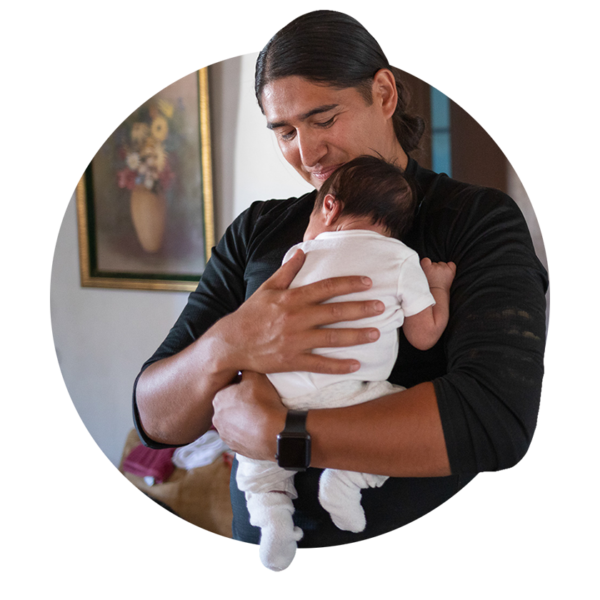
"I am from the best place in the whole world to grow up."
“I am from a rural community in northern New Mexico, home to about 2,500 Taos Pueblo tribal citizens. It was the best place in the whole world to grow up.
When I graduated from middle school, my parents decided to move us to away from this perfect place so that my brother, my sister, and I could widen our perspectives and challenge our realities. When I would come back to Taos Pueblo for summer breaks, I would see the community that I grew up in in a different light; I saw more and more opportunity.
That’s when I started building this desire to want to come back home and serve the community with the skills I acquired. And I did, which grew in to wanting to go back to grad school so I could continue this work, not only at Taos Pueblo, but with other communities.
Today, I work at Microsoft, building relationships with communities that host our datacenters around the globe. I’m using Microsoft’s capacity and resources to serve . . . and to have an impact in communities like mine.”—Adonis Trujillo, from Taos Pueblo, New Mexico
“It’s pretty cool not to feel like I’m just one voice.”
“Working for a worldwide company has been an incredible opportunity because I get to connect with different people who have different perspectives—and then be able to work together, across the world, to build something bigger.
That’s what I’m doing now with our employee sustainability community. By coming together with employees in other countries who care about environmental causes, I get a chance to work with people who share my passion and then learn from each other.
It’s pretty cool not to feel like I’m just one voice. Even if I was just one voice, I’d still continue to speak about it and not stop! But it’s reassuring to know I’m not alone.” —Clara Mansilha, from Porto, Portugal
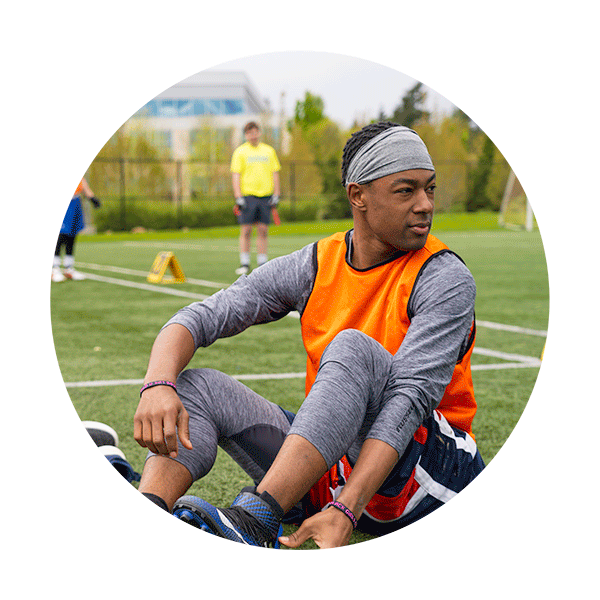
"Football was about solving puzzles, and facing opposition is a mental game."
“I wrote the phrase, ‘12 years to a climate catastrophe,’ on my whiteboard in my office. I got it from the 2018 UN climate report. It motivates me.
Growing up, I played elite football in Plano, Texas, and again in college. I got the chance to challenge myself against the very best. Football was all about solving puzzles for me, and facing opposition is a mental game—I feel that way about climate change, too.
So, I started this project called Zero Waste to help people sort their waste better. On my first day at Microsoft, I was intimidated at all the trash bin options. Back home in Texas, we had nothing like it. If I felt this way, maybe others did, too. I thought up a way for a camera to teach us, by giving us positive or negative feedback about which bin to put our forks and cups in. It’s kind of like a coach.”—Phillip Hale, from Plano, Texas
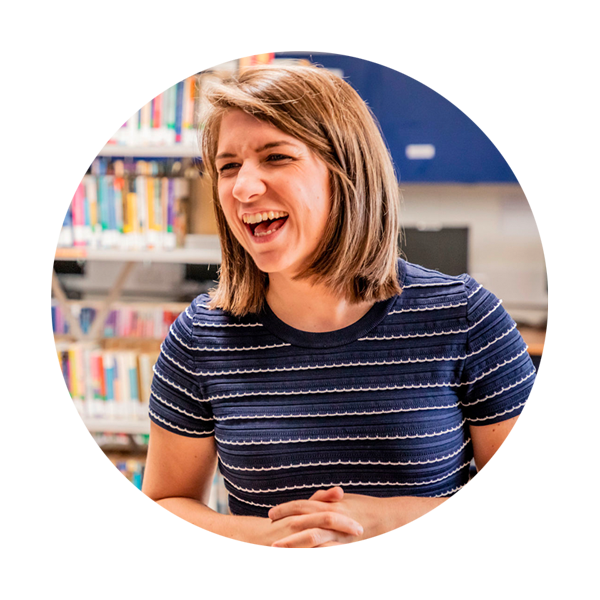
"I firmly believe you cannot be what you cannot see."
“When I was a student, I played and eventually helped coach basketball. I vividly remember teaching a girl to do a layup and then seeing how happy she was when she mastered it.
That’s when I realized how much I love helping people achieve things they couldn’t do before. This led me to a career in teaching, where I taught PE, biology, and computer technology to secondary school students. And now I teach computer science at Microsoft.
I firmly believe you can’t be what you can’t see. I want to show students that it doesn’t matter where you live. It doesn’t matter what you’ve done. It doesn’t matter what your parents do. You can do this; it’s possible for you.”—Amanda Joliffe, raised in Bluebell, County Dublin, Ireland

“A doll can cultivate and unlock a child’s potential.”
“’Do you know what this would have done for my self-esteem, if I had grown up with a doll that looked like me?’ One of my customers just said that to me, and I hear it often.
Three years ago, my partner and I started a business inspired by my daughter after she asked me to help make her hair ‘flowy.’ Her hair was thick, tightly curled, beautiful Afro hair that didn’t do what her friends’ hair could do. I thought, my goodness, she’s so young, and she’s already wishing for something that she is not.
At that moment, I felt my childhood rush back, not really looking at myself as beautiful, because wherever I looked, blond, blue eyes, fair skin, and thin was the standard of beauty. So, I decided to make dolls that represent my daughter, me, and many others in South Africa and beyond.
Some people argue that a doll is just a doll. But I say a doll can cultivate and unlock a child’s potential. Everyone deserves to feel beautiful.”—Khulile Vilakazi-Ofosu, from Newcastle Township, KwaZulu-Natal, South Africa
"I was 11 years old before I became an American citizen, so I could understand and respect what it meant."
“I was adopted from Colombia as an infant, but my parents wanted me to wait until I was 11 years old before I became an American citizen, so I could understand and respect what it meant.
On the day I became a citizen, my fifth-grade class joined me at the courthouse. I sat in front of a judge and talked about the US history I’d been studying in school, the freedoms that come with being a US citizen, and how so many of those rights came at a cost.
The weight of that conversation stuck out in my mind. That’s why I feel a responsibility to support our military community. They’ve made a commitment to protect our freedoms and to serve the people in our country—including me.
And so when the question came if I could mentor service members as they transitioned to careers outside of the military, it was the least I could do. And I feel honored to do so.”—Gina Kirby, from Fargo, North Dakota
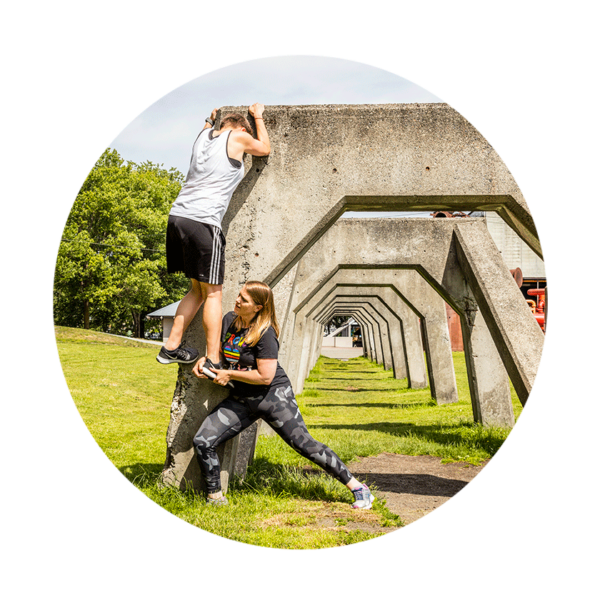
"She owned up to her mistake. I never forgot that."
“When I first met Shannan, she was a first sergeant in the US Army, and I was a sergeant. I never thought we would become best friends and eventually end up working at Microsoft together.
During a phone call where she was getting to know me as solider, she accidentally said ‘husband’ instead of ’wife’ when asking about my spouse. I corrected her, and she started laughing and apologizing. It was rare to have a female first sergeant, plus she owned up to her mistake. I never forgot that.
We got to know each other, and she started to see potential in me. Then, when I went through a divorce and lost just about everything, Shannan was there for me. She knew that the healthier I was, the better I could perform. Eventually, I realized that she was my friend. When she got a job at Microsoft, she helped me find a way too. It’s all about women helping other women.
Shannan has helped me, and she says I’ve helped her too, and now she’s my biggest ally.” —Ashe Brasch, from Chicago, Illinois
"Standing up for what’s right often isn’t comfortable."
“In 2016, while volunteering to protect the Native vote in North Dakota, I was also able to join the protest of the Dakota Access Pipeline in Standing Rock—the largest gathering of indigenous people in recent history. People were coming from everywhere, and my daughter and I joined other Hawaiians already there.
In indigenous America, if you’re having a meaningful gathering, everybody’s out there: kupuna (elders), keiki (kids), makua (parents). That’s how it is. Elders lead, and we draw on their wisdom and spiritual strength. The children are learning. We have a responsibility to the next generation, so we do everything to teach those that are here and prepare for those that aren’t yet born. My daughter brought her ipu to participate in drumming. It was cold, but she understood that standing up for what’s right often isn’t comfortable.”—Makalika Naholowa’a, from rural central Arizona
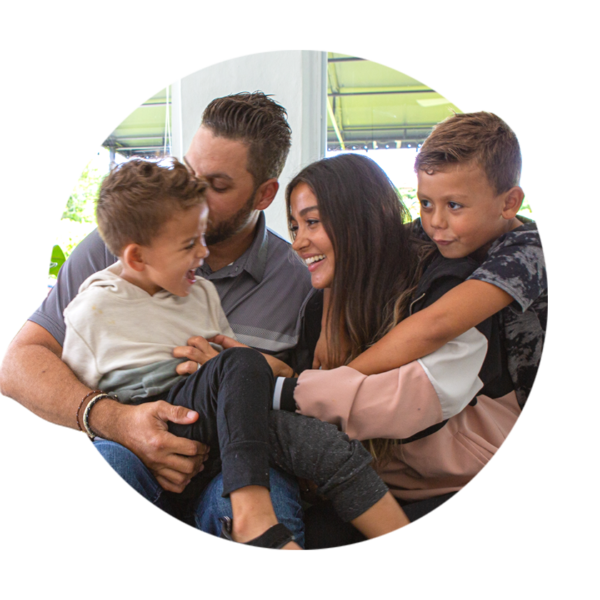
“I want to rewrite the narrative for working moms.”
“’I’m not the right fit for this job,’ I told to the manager. Although the position seemed ideal, I panicked when I found out I was pregnant.
If I wanted to raise a family, I thought I couldn’t be a working mom. It would be too hard. Being Cuban and Puerto Rican, I often feel like I must take on many different roles.
Employees from cultures centered on family may struggle with the same guilt I felt for balancing both family and work.
The manager told me that I was the perfect person for the job and assured me I’d have a supportive community during my motherhood journey. For the first time in my life, I felt like I could do both.
That manager was right. Now, six years after accepting the position, I have two boys, and I am the southeast community engagement manager for Microsoft.
My experience inspired me to adopt a new mission: rewrite the narrative on working mothers.” —Brittany Valdes, from Miami, Florida
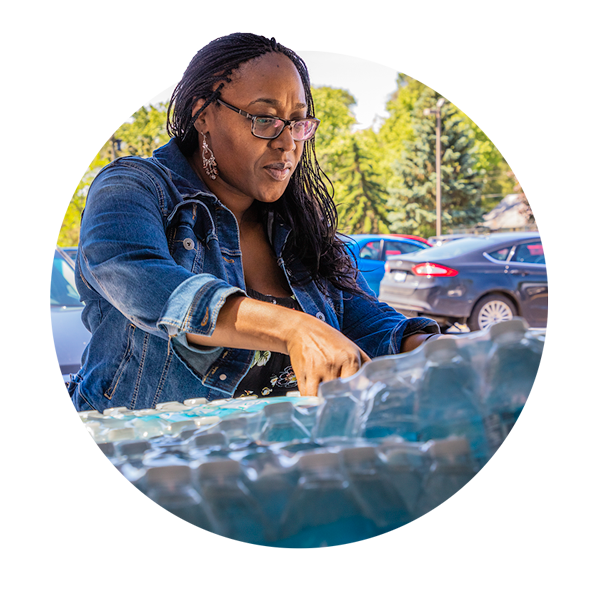
“The change starts with me, and if 10,000 other people do something too, now we have a movement.”
“When I first heard about Flint, I had to do something. Friends and I collected thousands of water bottles and drove to the town to pass them out to kids in afterschool programs and older folks in assisted housing.
When I was there, I went to look at the Flint River. It was so dirty; you wouldn’t even put your hand in it. I had to do more, so we took three more trips to pass out clean water. I go back often to check on my new friends there.
You might think that you can’t really help, but if there are a million others saying that same thing, that’ll be the truth. The change starts with me, and if 10,000 other people do something too, now we have a movement.” —Shy Averett from Detroit, Michigan
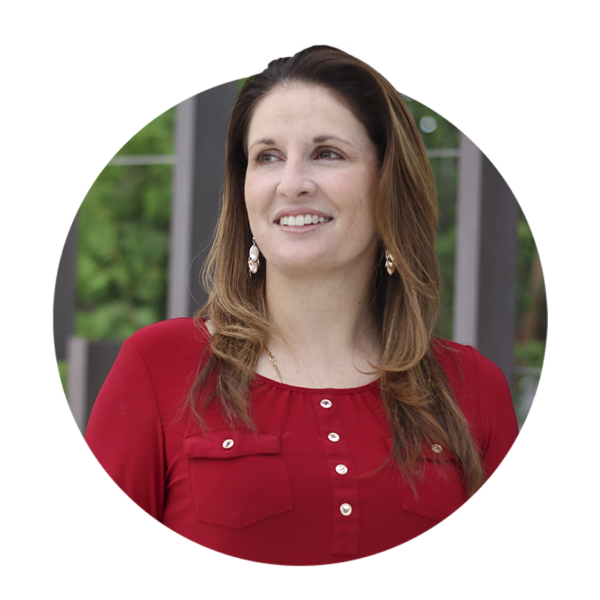
"I love helping people who are not served by the education system."
“My mom was a teacher who taught students who were blind and visually impaired, and as a kid, I spent afternoons in her classroom. That’s where I first began to love helping people who might not be served by the traditional education system.
I now have a PhD in educational policy. I want to figure out how to help all students succeed.
Even before coming to Microsoft, I’d heard about TEALS (Technology Education and Literacy in Schools – a Microsoft Philanthropies program that has reached 75,000 students since it was founded 10 years ago by a Microsoft employee). I thought it was a fascinating model because the focus is on partnering with the teacher—which has a long-term outcome if a volunteer can’t be there the next year. And it’s great to be able to serve rural schools whose students need it the most.
So I applied to volunteer, and I’m now going on my second year teaching at a small town high school in Leavenworth, Washington, where I often connect using video conferencing.
I think the best way to express gratitude to those who helped me is to try and do the same for the next generation of learners.”—Maria Mendiburo, from West Palm Beach, Florida
"I only have so many years and hours to live. I want to spend it doing what I love."
“I grew up watching my parents push themselves to provide for our family. I wanted to be like them, and their work ethic pushed me toward having my entrepreneurial drive. Even as a kid, I spent the summers selling water and soda on our street corner to golfers. This taught me several lessons, but most importantly it taught me how to think quickly on my feet.
As I grew up, and even now, I constantly keep pushing—wondering when is too much going to be too much? I want to find my boundaries, my breaking point. Can I run another triathlon? Can I go back to get my master’s in computer science while working? Can I start my own company? Can I climb a mountain? Can I participate in Microsoft’s hackathon every year, even while summiting Mt. Rainier? So far, it’s all worked out. It hasn’t been easy, but the harder it becomes, the more I want to challenge myself to succeed.
For me though, family always comes first. Can I do all of it and be the best dad to my girls and husband to my wife? Sure, my sleep and energy are sacrificed, but at the end of the day I only have so many years and hours to live. I want to spend it doing what I love and showing my girls how hard work can pay off.”—Matt Fisher, raised in Orlando, Florida, and Seattle, Washington
“I decided to trust my crazy idea . . .”
“When I came to Microsoft, I was asked to reimagine our compliance learning programs, including our annual Standards of Business Conduct course, which is required training for all employees and our board of directors.
The course needed to teach employees how to approach ethical challenges with integrity. But first, I knew that the training had to be interesting and had to stick with employees.
I considered the TV shows that people typically binge watch—shows with suspense between each episode; shows with relatable characters, timely storylines, and complex decisions.
That’s when a crazy idea hit me. Could we make the course into a binge-worthy saga that would focus on getting employees hooked on the show and invested in the characters?
I was nervous about making such a drastic change, but after season one launched, it went viral. I received a lot of very positive feedback from employees. Several coworkers from all over the company helped make it a success. Season three is about to drop, and I keep getting asked what will happen—but no spoilers!”—Rashelle Tanner, from Seattle, Washington
"Maybe true empathy will motivate us out of this mess."
“I remember wading through tidepools as a kid in Los Angeles. I was obsessed. I kept bugging my parents with questions they eventually couldn’t answer, so they enrolled me in an oceanography class at the local college when I was in seventh grade.
After college, I did field research in Myanmar, where my grandmother grew up. I saw kids playing in the ocean surrounded by plastic debris, and it hit me, how differently climate change affects people around the world. I got an idea for a children’s book to show kids what it’s like living where climate change is a daily reality.
The book, The Adventures of Tuya and Noyon, lets kids choose their own adventures to learn what it’s like to live in someone else’s shoes. Maybe true empathy will motivate us to get out of this mess.”—Bonnie Lei, from Walnut, California

"Clothes are the skin you choose for yourself."
“I always loved fashion. Clothes are the skin you choose for yourself, how you silently convey to people what you are about.
I was surprised to find out that some of my clothes were made through practices associated with greenhouse gases, the overuse of water, and human rights violations. I didn’t know that I was contributing to something that could be detrimental to the environment.
So, I started getting interested in sustainable clothes, women’s empowerment, fair labor, and conservation. Now, I volunteer for Fashion for Conservation. We organize galas and runway shows to spread the vision of conservation, and we work with artisans in Peru to train them on sustainable practices for making and selling jewelry and accessories to create their own business.”—Sandhya Shahdeo, originally from Ranchi, Jharkhand, India
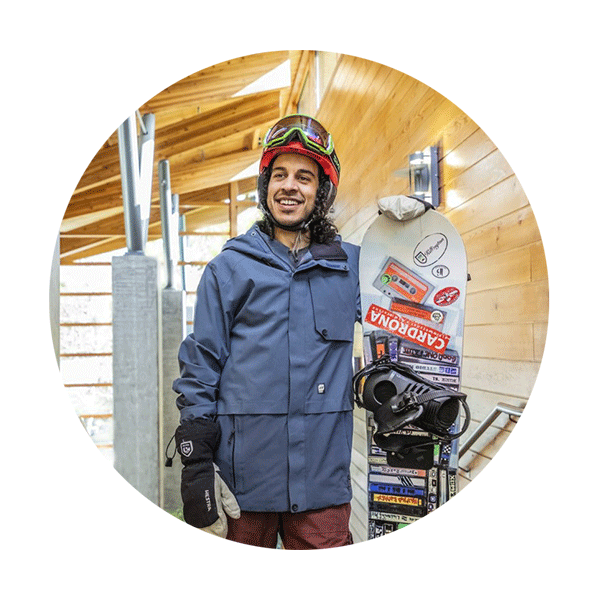
"Snowboarding has taught me that we won’t get anywhere if we don’t do it together."
“I love snowboarding, but being a darker-skinned Latino, I didn’t feel like I had a community out there on the mountain. It’s not only an expensive hobby—the board, boots, gloves, waterproof clothes, helmet, googles, lift ticket, and transportation—but you also need close friends or family to introduce you to the sport.
That’s why I volunteer at The Service Board, an organization that focuses on mentoring and social justice through snowboarding. We take teens who might not even think to try it, give them all the gear they’ll need, and start building a community to keep them going.
Snowboarding teaches you about your own strength, and everyone deserves a chance to try it. How to struggle and how to ask for help, especially when there are obstacles that you just don’t know how to overcome.
I’ve seen beauty on mountains since I was a kid. Unfortunately, the seasons are becoming more erratic with less snowfall. This change is destroying nature, affecting animals, and altering the planet. There’s a lot we need to do, and snowboarding has taught me that we won’t get anywhere if we don’t do it together.”—Sebastian Apud, born in Argentina, raised in Washington, DC
"I realized food wasn’t something to fear; it could be art."
“I used to have a restrictive eating disorder where I’d limit how much I ate or deem entire food groups as good or bad. My relationship with food and my body was stunningly disempowering for me. It bled into my social life and relationships with people. I used my eating habits as a coping mechanism.
A couple of years ago, I sought professional help. To hold myself accountable for eating well, I created an Instagram page called @kalemyvibe, where I began documenting my recovery. I realized that food wasn’t something to fear; it could be art. I realized when I stopped obsessing over what I ate, I felt more empowered and present in the moment.
Now that I’m on the journey of healing, I’m focusing on intuitive eating and creating a more sustainable relationship with food. Wellness doesn’t have to look like expensive superfoods; wellness can look like you.”—Unnati Shukla, from Houston, Texas
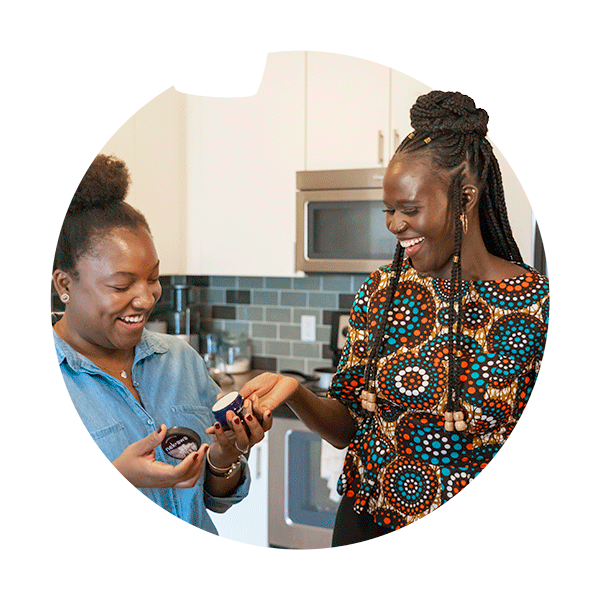
“Maybe the way forward is to look backward.”
“I was born in Senegal but moved to Harlem when I was 6 years old. One of the ways I stay connected to Senegal is carrying on the tradition of making my own shea butter to use on my skin and hair. Ever since I can remember, the women in my family used to slather it all over their babies and themselves.
I recently went back to Senegal for the first time since I was a kid. In my family’s village, several miles inland, I saw how they make almost everything they consume: eating from their own gardens, raising their own livestock, and using natural beauty products like shea butter for a lot of different things.
They were living a sustainable life before calling it sustainable. With sustainability, maybe the way forward is to look backward.” —Awa Diaw, from Harlem, New York City
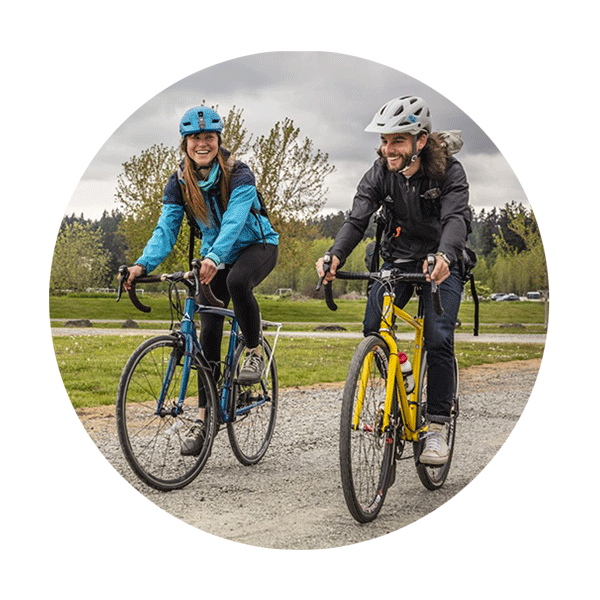
"We don’t give up easily. ‘No’ doesn’t intimidate us."
“Coming to Microsoft from the nonprofit sector, I immediately saw that we could be doing way more around environmental sustainability. I saw employees talking about it but not a lot of solutions.
That’s when my coworker Holly and I started a group for employees who are interested in Earth, too. In under a year, we’ve had 1,000 people from all over the world join. Our motto is to be action-focused and urgent. We’ve done lots of different projects, from piloting a zero-waste café for employees to working with a nonprofit that cleans up the ocean by using data recognition.
‘No’ doesn’t intimidate us. Our love for protecting Earth’s resources started as a love for the outdoors. We find ultimate peace outside; it’s something that we love. And you protect what you love.” —Drew Wilkinson, from Phoenix, Arizona, speaking about his work with Holly Beale, from Seattle, Washington

“Climate change worries the hell out of me.”
“For me, climate change is personal. I grew up in Kunming, China, nicknamed “Spring City” for its Mediterranean-like, mild weather. Kunming Lake sits right next to the city; it’s a beautiful lake that’s had poems written about it. But when China was industrializing, developers and farmers filled it with dirt and debris and crops, gravely reducing the mass and volume of the lake. Now, the climate of the area is more extreme with each winter and summer.
Climate change worries the hell out of me.
Today, I work on a team that looks at how artificial intelligence could address some of Earth’s most challenging problems. Everything we do in the name of sustainability should solve problems, not just make us feel good about ourselves.” —Siyu Yang, originally from Kunming, China

"I’m part of something that’s so much bigger than me."
“Being outside makes me feel at home, where I feel like I’m part of something that’s so much bigger than me.
When I was a kid, I started digging holes in the backyard of our house. It turned out I was a really good archeologist, because I found a lot of fossils. It later dawned on me that I wasn’t a budding, famous archeologist. My parents had been burying chicken bones in the backyard for me to find—to keep me busy. And I was digging them up.
Now I see how important parents can be in allowing you to follow your passion when you’re a little kid, how they can put you on a path to something that can become a lifelong pursuit.” —Lucas Joppa, raised in Phillips, Wisconsin
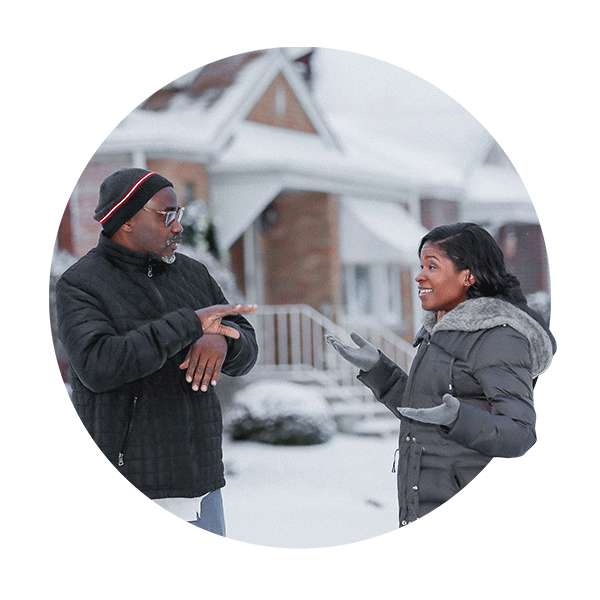
"I’m looking for the marginalized within the marginalized."
“My parents both lost their hearing when they were young kids, and I started signing at six months old.
My life has given me a special lens for people marginalized by the intersection of race, gender, class, and disability. So now, I make sure I’m representing Chicago, my background, and people who look like me—but also people in my family like my parents. I’m looking for the marginalized within the marginalized.
That’s the main reason I got into tech: When you have access to affordable technology that is inclusive of people with disabilities, everything changes. That’s what accessibility means.”—Heather Dowdy, from Chicago, Illinois
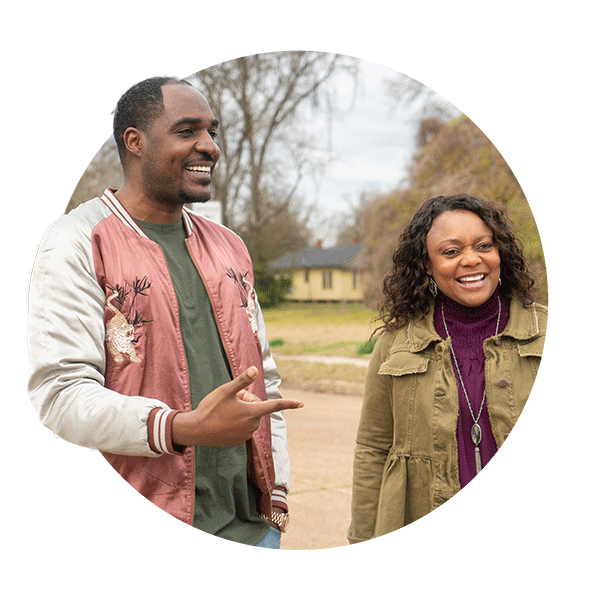
"The greatest investment she gave me was her time."
“Natalie is my ‘dopest’ cousin. When I was a kid, she pulled up in a fancy new car, and I asked her who she was dating. She said she wasn’t dating anyone but that she was an engineer.
I didn’t even know what an engineer was. But then I learned it was about problem-solving, and I was curious and wanted to experiment. So, Natalie—the first Black female engineer at her company, though I didn’t know it then—sat down, talked with me, and helped guide me through my entire career path. She was and is always just there.
The greatest investment she gave me was her time.”—Tareq Humphrey, from Alexandria, Louisiana
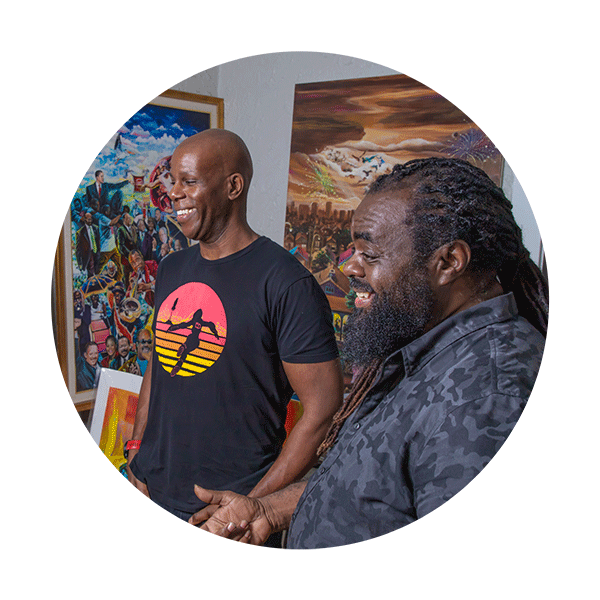
"It’s important to have people in your life that show you that success is real."
“Often people don’t have a chance to see themselves as more than one or two flavors of success. Right? One challenge I had was seeing what success looked like for me.
But a teacher, Mr. Thomas, helped me see things differently. He defined exactly where he wanted to be and did exactly what he wanted to do—from teaching, to his art studio that he shared with the community, to making his own art.
I can’t say how important it is to have people in your life that show you that success is real and not just for anyone, but for you.”—Howard Robinson, from New Orleans, Louisiana

"I’m eternally grateful to her; she’s left a lasting impression on my life."
“My former teacher, Ms. Northern, is that person who’ll encourage even the most challenging students. I wanted to go to college but couldn’t quite see how to do it. Ms. Northern helped me by suggesting a journalism camp at the University of Florida . . . and it just opened me up to a whole new world.
I’m eternally grateful to her, and she’s left a lasting impression on my life. I could only hope and pray that I’m able to duplicate that for somebody else one day.”—India Powell, from Jacksonville, Florida
Helping create a better tomorrow
See more ways we’re working together to make a lasting positive difference.
-
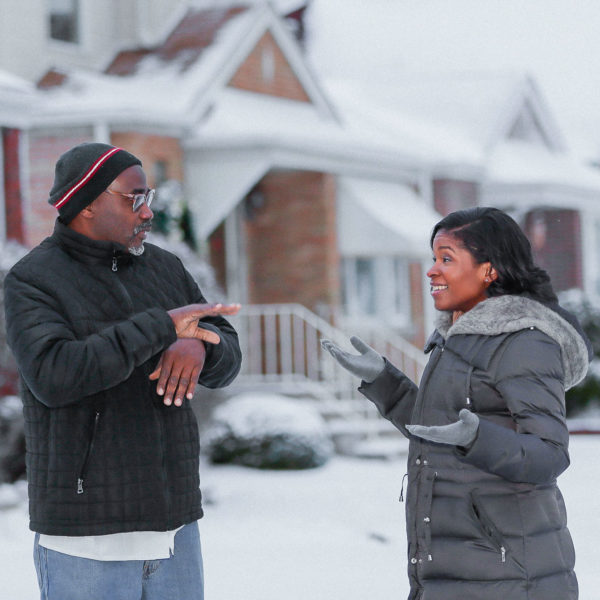
Living our company mission
Meet the people who empowered our employees to help others achieve more.
-
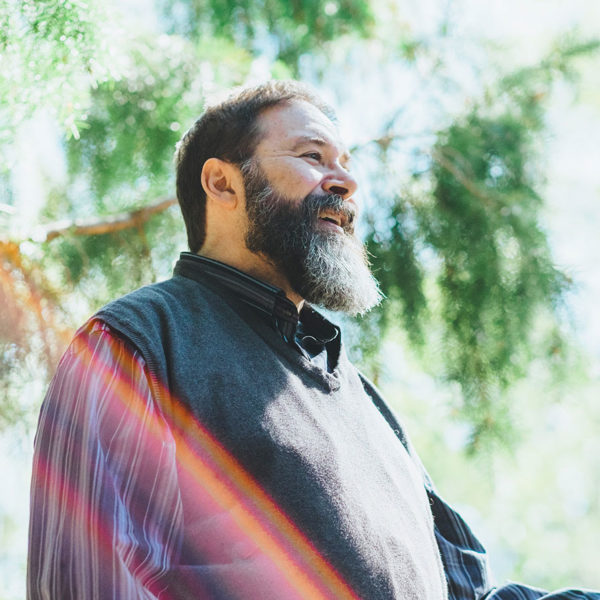
Improving the world around us
Understand our commitment to strengthen communities and protect our planet.
-
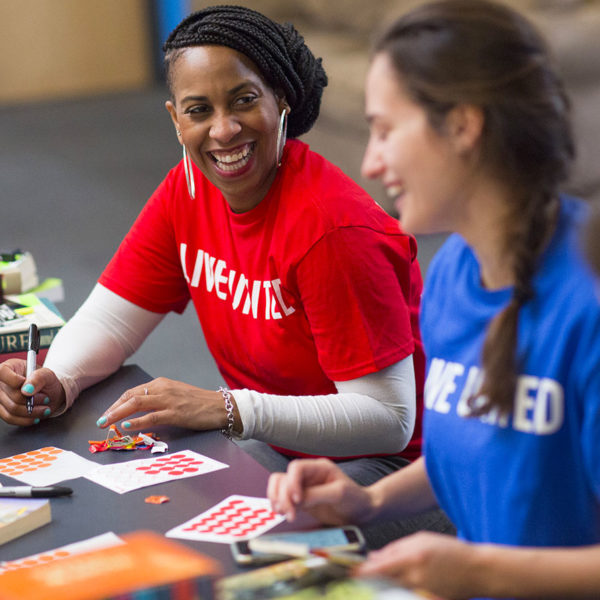
Investing in communities
Discover how we’re addressing the issues behind social and economic exclusion.
-
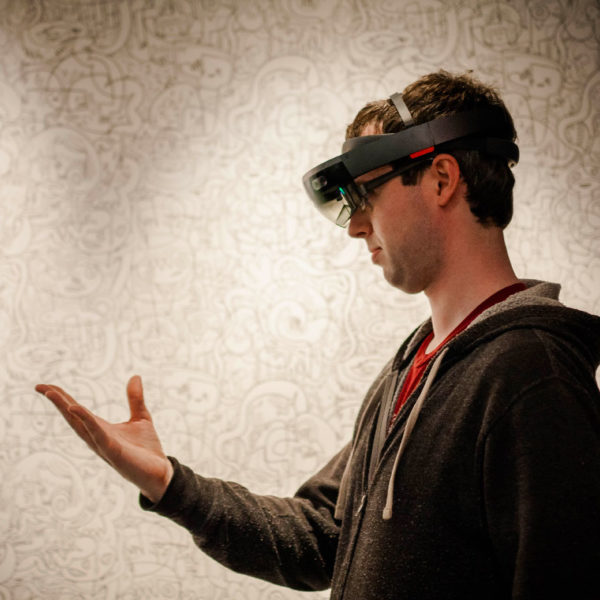
Innovating with meaning
Explore the latest tech that has the potential to change the world.



